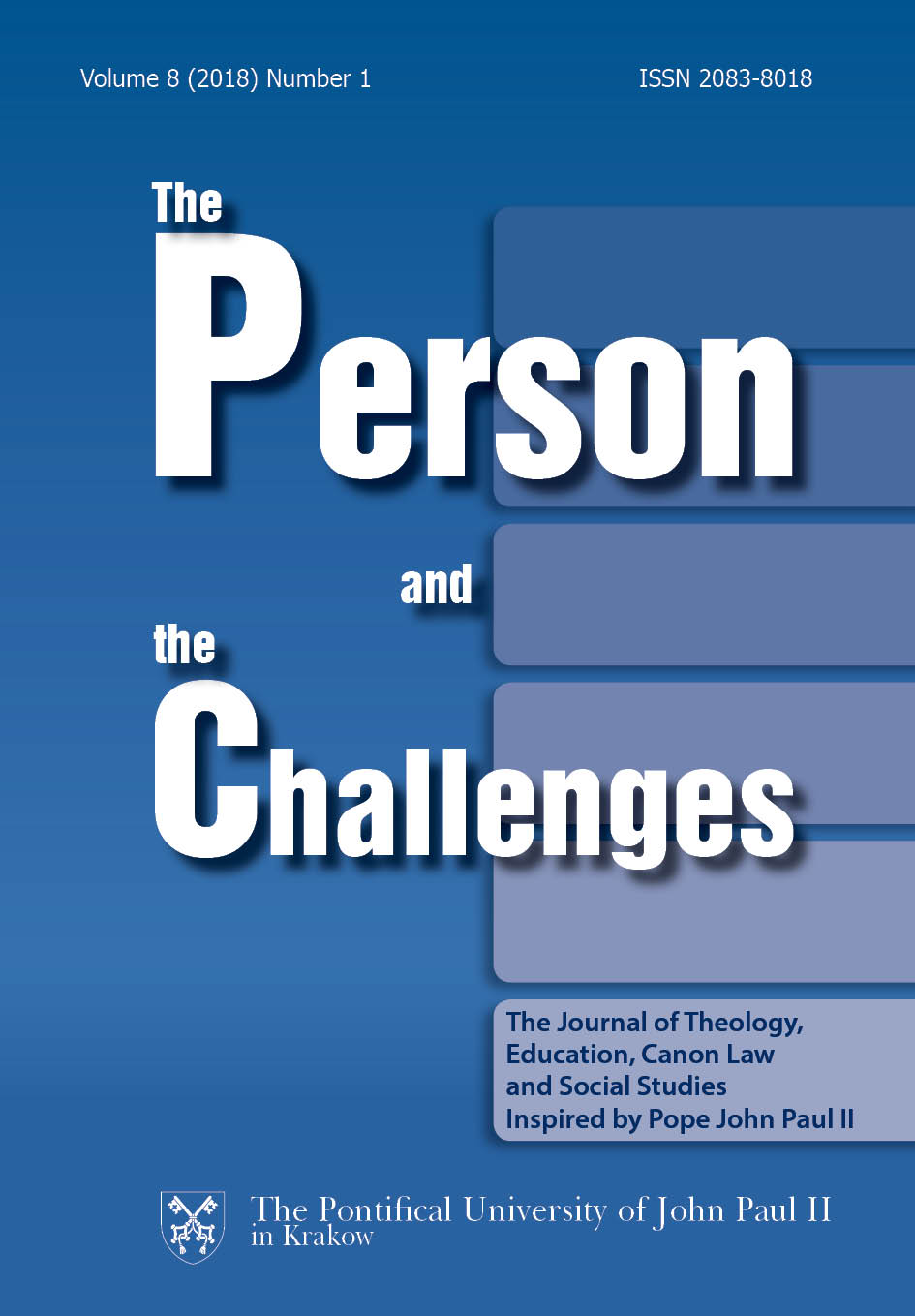La administración de los bienes de la Iglesia hasta el siglo X: algunas de las disposiciones, especialmente de los concilios, y su recepción en el Código de Derecho Canónico de Juan Pablo II
DOI:
https://doi.org/10.15633/pch.2434Słowa kluczowe:
Administration of Church property, councils, finance officerAbstrakt
This article analyses the evolution of the goods of the Church and its administration during the first millennium of the Christian era. It reveals the first community of Jerusalem where believers had everything in common, discusses the centrality of the Bishop and severely damaging mismanagement, and some of the provisions on the subject under study, especially those arising from the various councils. It talks about the attempts and tendencies towards the disintegration of the diocesan heritage as a unitary whole from the sixth century; notwithstanding which, the Bishop has the responsibility for his subordinate entities, keeping the administrative power over the property of the diocese. In the last part, the article presents several of these provisions in the Code of Canon Law by John Paul II.
Bibliografia
Sources
Alberigo G. et alii, Conciliorum Oecomenicorum Decreta, Bologna 1991.
Artola M., Textos Fundamentales para la Historia, Madrid 19858.
Funk F. X., Didascalia et Constitutiones Apostolorum, Paderborn 1905.
Mansi J. D., Sacrorum Conciliorum Nota et Amplissima Collectio, Graz 1960.
Metzger M., Les Constitutions Apostoliques, Tome I, Livres I et II, Paris 1985; Tome III, Livres VII et VIII, Paris 1987.
Migne J. P., Patrologiae Graecae, cursus completus, Paris 1857.
Migne J. P., Patrologiae Latinae, cursus completus, Paris 1844.
Ruiz Bueno D., Padres Apostólicos, Madrid 19855.
Authors
Barile A., De Patrimoniali Ecclesiae Regimine, Historica vel juridica praesupposita, Roma 1925.
Basdevant-Gaudemet B., L’archidiacre et l’archiprêtre d’après le Décret de Gratien, en: Iudex et Magister. Miscelánea en honor al Pbro. Nelson C. Dellaferrera. Tomo I Historia del Derecho, Buenos Aires 2008, p. 85-107.
De Paolis V., I beni temporali della Chiesa, Bologna 1995.
De Paolis V., Les biens temporels au regard du code de droit canonique, “L’année Canonique” 47 (2005) 7-35.
Di Nicco J. A., El Ecónomo Diocesano. Precisiones acerca de este oficio eclesiástico. Propuesta sobre el parágrafo tercero del canon 494, Buenos Aires 2012.
Ferme B. E., Introducción a la Historia de las Fuentes del Derecho Canónico. El Derecho Antiguo hasta el Decretum de Graciano, Buenos Aires 2006.
Grazian F., La nozione di amministrazione e di alienazione nel Codice di diritto canonico, Roma 2002.
Martínez Aguilar F. R., Las normas sobre la administración económica en las Iglesias particulares. En especial su aplicación en el derecho particular del cono sur latinoamericano, Montevideo 1998.
Mosca V., Il ruolo della gerarchia nell’amministrazione comunionale dei beni della chiesa, en: Iustitia in Caritate, Cittá del Vaticano 2005, p. 387-409.
Mosconi M., “Sede vacante nihil innovetur”: i limiti all’esercizio dell’autorità nella condizione di vacanza della sede, QDE 17 (2004) 146-175.
Perlasca A., Il concetto di bene ecclesiastico, Roma 1997.
Perlasca A., La Curia Diocesana: Fundamentos teológicos y administrativos, en: La curia diocesana. Aspectos jurídicos y pastorales, Buenos Aires 20113, p. 9-25.
Rivella M., Partecipazione e corresponsabilità nella Chiesa, i consigli diocesani e parrocchiali, Milano 2000.
Schouppe J. P., Elementi di Diritto Patrimoniale Canonico, Milano 1997.
Pobrania
Opublikowane
Numer
Dział
Licencja
Prawa autorskie (c) 2018 Jorge Antonio Antonio

Utwór dostępny jest na licencji Creative Commons Uznanie autorstwa 4.0 Międzynarodowe.
Autorzy publikujący w czasopiśmie udzielają jego wydawcy zgody o następującej treści:
- Autor zachowuje autorskie prawa majątkowe do utworu, a jednocześnie udziela wydawcy czasopisma zgody na jego pierwszą publikację w wersji drukowanej i wersji online na licencji Creative Commons Uznanie autorstwa 4.0 Międzynarodowe oraz zgody na wykonywanie opracowań, w tym przekładów.
- Autor ma możliwość udzielania zgody niewyłącznej na opublikowanie utworu w wersji, która ukazała się w czasopiśmie (np. zamieszczenia go w repozytorium instytucjonalnym lub opublikowania w książce), wraz z informacją o jego pierwszej publikacji w czasopiśmie.
- Autor może umieścić swój utwór online (np. w repozytorium instytucjonalnym lub na swojej stronie internetowej) jeszcze przed zgłoszeniem utworu do czasopisma.

